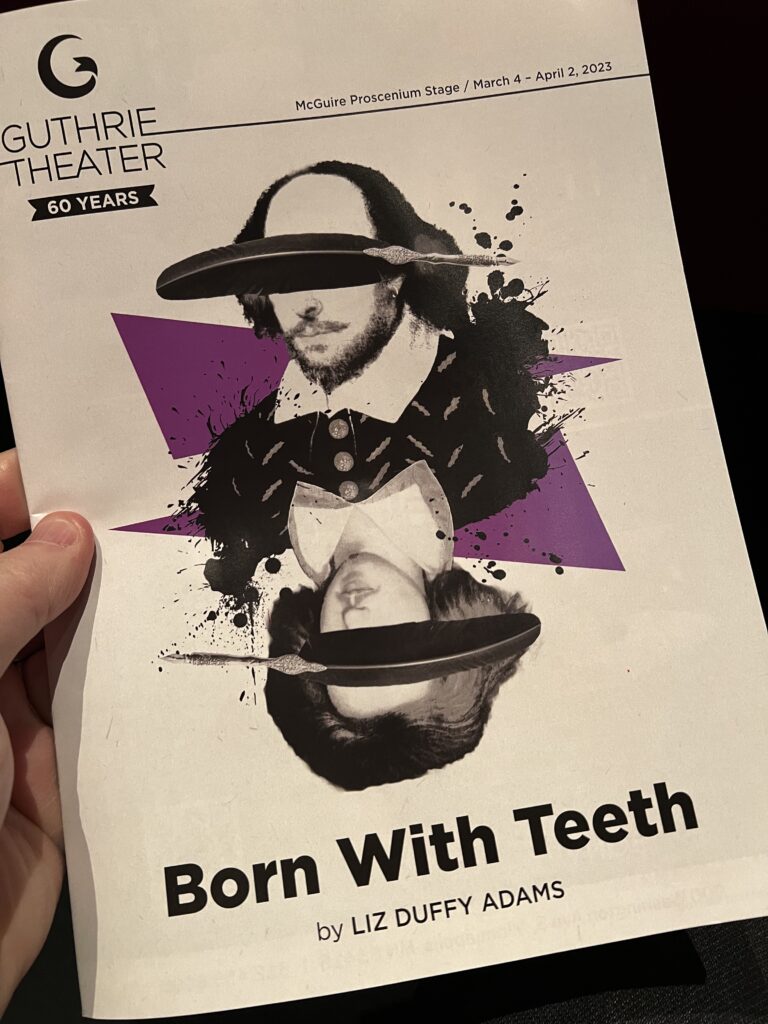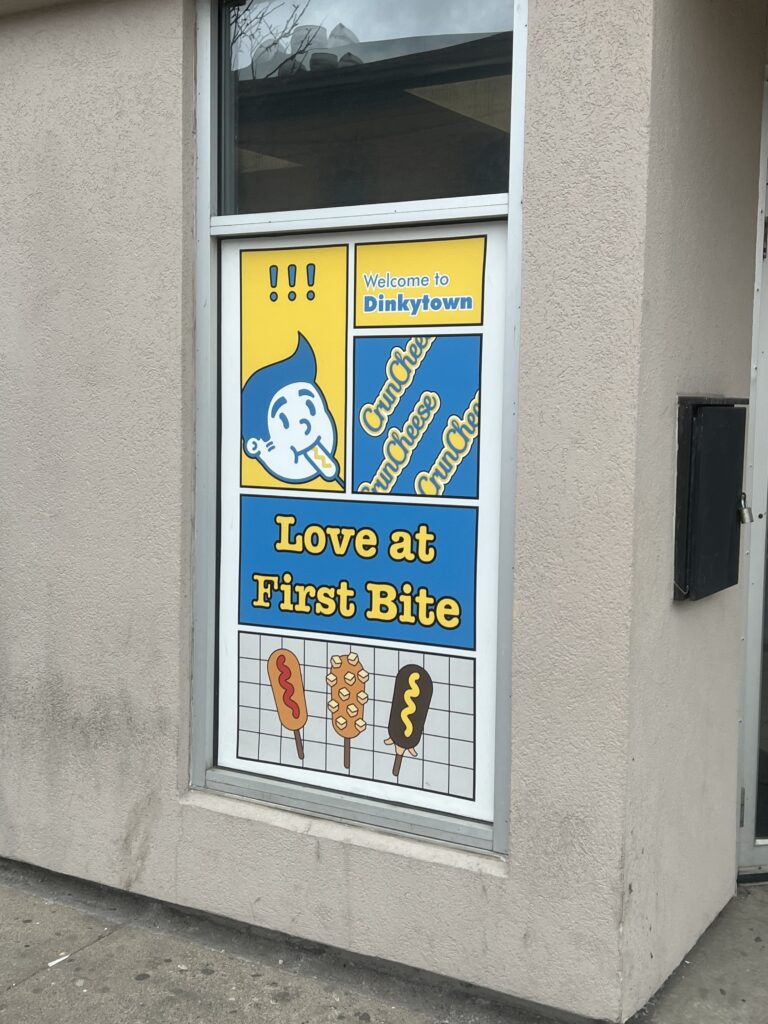Writing is hard work.

This lively play, written by Liz Duffy Adams and directed by (full disclosure – my college friend) Rob Melrose, presents the most intense imaginable writers’ workshop. Just two writers, alone together, in a rented room upstairs in a London tavern. Nothing but small beer to drink. Lord Strange’s Men need a new history play, and their buddy Tom Nashe has botched up a first act only. Time for Will and Kit to learn to work together – but what does that twinkle in the country boy’s eye mean when he looks at the flashy, well-dressed London writer?
Their banter sparkles, with assorted familiar lines parceled out to each of the two writers. At this stage of Elizabethan history, Kit Marlowe, played by Matthew Amendt, is the reigning star while newcomer Will Shakespeare, played by Dylan Godwin, has just a play or two, plus a nasty line by Robert Greene about being an “upstart crow,” to his credit. The play skips through gorgeous banter about some of the juicier figures in the early history plays. Sentimental Shakespeare wants Joan of Arc (1H6) to be a tragic figure, while Marlowe relishes her burning. The two writers, now mutually besotted, perform the heartrending farewell of Queen Margaret and her lover Suffolk (2H6 3.2), even though that means positioning themselves as enemies of the state. When Will blurts out play’s title, “Born with Teeth,” as a description of Kit, both writers immediately say “I’m using that.” (The line echoes a bit of self-description by the future King Richard III in 3H6 [5.6].)
Without spoilers I can’t say too much about the love story, except that it’s both set up from the first glimpses of hero-worshipping Will wanting to work with his literary hero, and also manages still to be surprising, and moving, through the end.

Two lines of Will’s echoed along my bitter cold walk back to the Hilton and the arriving throngs of #shax23. Especially in the first scene, when Kit brags about his elite connections, his spycraft, and his literary successes, Will’s refrain is “I just want to write.” The country boy is a careerist, a writer-bee, living to sit before his quill, though he also speaks passionately about needing money to support his family in Stratford, where his debts, if perhaps not his heart, lie.
The other line, which works in semi-opposition to the first, has Will repeating “You don’t know me” to the then-more famous Kit. At first it’s the anonymous writer’s self-defensive riposte to the star about whom so much is public. But there’s mystery behind the new guy’s facade.
Some speculative lines about Kit’s exuberant desire to live in and on and through all parts of the world, in opposition to WIll’s dedication to the “ineffable” punctuates the literary-theoretical elements of their dialogue. Kit’s suggestion that he’s never encountered anything in the world he could not “eff” got a nice laugh, and also intensified the brewing love plot.
Together the two rough out, though not quite in the order in which we think they were written, the plays we today call the first two parts of King Henry 6th. It’s not clear that they get all the way through Part 3, or into Richard III, which closes out the sequence, due to Kit’s reckoning in Deptford.

I won’t comment on the final solitary tableau, since I don’t think I can without spoilers, though of course we all know which of these two men died in a tavern in 1593 and which one went on to write Richard III, Hamlet, and all the rest. But I think I would have stopped the last speech one line before the play did – not because the last line is wrong, but because I think we’d gotten there without it needing to be said.
#shax23-ers should get to the Guthrie this week so we can chat about the play in between lectures and seminars!